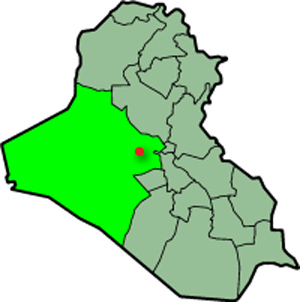ISIS Operations in Anbar and Ramadi. Iraq Government Forces Response

The Iraqi Government officially announced the start of military operations to “recapture Anbar” in western Iraq from ISIS. Although the announcement did not detail the nature of these operations, ISIS’s positions in the province are entrenched and distributed, challenging military operations that focus upon clearing only one city at a time under ISIS’s control.
Operations led by Shia militia groups were already underway in the vicinity of ISIS-held Fallujah prior to the announcement of the ISF’s new Anbar operation, indicating the independence of several groups from the command and control of the Iraqi government. Nonetheless, attacks and engagements around Ramadi increased following the announcement.
Ramadi had been mostly quiet after the fall of the city to ISIS in late May 2015, and its reemergence as a frontline suggests that the Iraqi government may intend to designate the city as its main objective while Iran-backed Shia forces prioritize Fallujah.
In turn, the occurrence of several major ISIS attacks in Baghdad likely indicates that ISIS desires to shift the attention of both the Iraqi government and the Shia militias forces away from Anbar Province and toward the capital.
It will be important to observe whether ISIS launches further escalations or spectacular attacks in priority areas for the Iraqi government and the Iraqi Shi’a militias, including Baghdad and Diyala, especially as the end of Ramadan on July 17 approaches.
Meanwhile, F-16s promised by the U.S. to Iraq in 2011 arrived. It is not yet clear what effect they will have upon immediate ground conditions in Iraq, though once they are employed, the F-16s will increase the power of the Iraqi air force also using the Russian-made SU-25s.
The Pentagon believes a stronger air force will give the ISF more autonomy in conducting more targeted airstrikes in support of ISF operations instead of relying on the coalition giving the ISF a competitive edge over the not US-backed anti-ISIS forces.
However, the observed results of usage air forces against ISIS in the region show that airstrikes without effective ground forces isn’t successful way to counter ISIS’s expansion. Even the US overseers recognize that IAF will not be able to defeat the Islamic State until they lack “will to fight” and flee from the battlefield in case of any threat.

